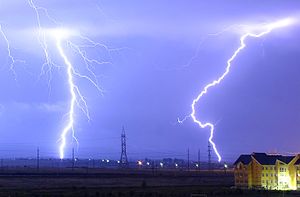I get a lot of comments I don’t post. I think it’s only fair to say why I post some and not others.
* I don’t post comments that offer an agenda that I find despicable, tedious, or needlessly controversial, especially when it’s not relevant to the content. Things that come through advocating white supremacy, neoconservative imperialism, hatred of particular ethnic groups (recently got one referring to the “Satanic Serbs”) – I don’t post. For one thing, you might read enough to at least realize who you’re talking to and what the blog is about, before vomiting this stuff all over us. But even so, it just would be material I’d have rebut, so someone else doesn’t have to, sparking a flame war. I only have so much energy and inclination to fight (yes, I have a little), and I see no point in letting other people determine when I’ll do so.
* I don’t post comments that disregard the very underlying premise of the conversation. The comments coming in that begin with the assumption that nothing matters but what you and I come to through some process of discussion or argument. These are the inherently Protestant commentaries that try to persuade through appeals solely to feelings, rhetoric, religious philosophy, or some activity of “coming to agreement” we presumably engage in with each other. I look upon these things as abject Roman Catholicism with the papal mitre simply democratized. Each of us is presumably our own pope, and we pronounce de facto what is and isn’t so, confusing our perceptions with the thing perceived – subject and object. It’s a waste of time for me to post those comments, because I find I’m endlessly making the same point in response: “Go away. We’re not really talking to each other at all. You’re trying to converse by saying, “Well, dismissing all you believe, all your sources of understanding, your religion, your fathers, your creed, all of it – your entire epistemology, and starting with just you and me here in a blog, let’s come up with our own religion, which will work just like a religious philosophy…” What kind of numb nuts goes in for something like that? It’s the Nigerian E-mail scam of the religious world. Might as well ask to borrow my wallet and my car, setting aside any commitments I might have to protect my family. Not being a dunce, nor inclined to needless repetition, and finding these attempts tedious in the extreme, I have responded to a handful of them, and chase the others off wherever possible. Truly, you can’t argue with a committed Protestant; he can’t hear you, so he just keeps ignoring what you’re saying are your premises and offering speculation or alien premises as substitutes. Drain your brain, he’s saying, and then we can talk.
* I don’t post comments that ignore the fact that previous comments made the same point, and are just being offered as a way to flood the comment box with extra “votes”. In fact, I click “spam” on those, and they stop arriving.
* I don’t post comments that offer to argue it out, without a useful end being proposed. See above – if the goal being proposed is that, by argumentation and discussion, we will arrive together at “the truth”, and have now a religious philosophy we can hold to, I have to remind you this is not a Protestant’s blog. I don’t count invitations to apostasy as useful ends. If the idea is argue so that you’ll understand it better, get better at arguing, etc. – what’s in it for me? That’s right – is your desire to be a better debater of one of these topics a claim on my attention and peace of mind? You’ve heard of spiritual warfare – what do you think I’m off doing, in this mind of mine? I really don’t need to fight a war on two fronts, if I can avoid it. This is called a blog of personal confession – I’m in it because it saves me, not because I want to argue, let alone argue for the sake of arguing. If you can propose a useful, and honest goal, that an Orthodox person can legitimately accept, then maybe arguing something out will be beneficial. So far, no one has done that. And “because I really want to know” is not useful or sincere, if that’s really just something you say to get the argument going – a feint, to invite your rhetorical opponent to reveal their hand. What, do you think you’re dealing with hobbyists? I’m not “just curious” – I’m in this for my life – I’ve been around that block – I’m no dummy.
* I don’t post comments that are out and out pretense. When some one writes, “So basically, you’re right, everyone else is wrong, and unless I believe what you believe, I’m going to Hell.” I don’t bother posting it. This person is not asking a sincere question, they’re summarizing via a mischaracterization, and trying to sell it as an innocent question. Again – no dummy here – a rhetorical question is just a statement with a question mark after it. What, do I seem to be of middling intelligence, with the emotional sophistication of a third grader? Besides being insulting to your host, it’s wasting the time of the audience. It’s more appropriate to yell out, “I know you are, but what am I?” than something that tedious and lame. Your desire to flop about and whine, “but I’m confused – I’m confused – enlighten me” is not a claim on anyone else’s attention. What, do you think I’m trying to get you “saved”? I’ve no such interest. I’m trying to save myself. I’m not responsible for your feigned desperation to “better understand”, when it’s a cliche for agitation. And no, I’m not “judging” you, I’m avoiding you, because you’re patently obvious in gimmicks that we’ve all come to know and recognize if we have any sense. Have you read Proverbs? Do you not see all the warnings against being taken in by scams? Next time you think I’m judging you, be consistent – send your money to that Nigerian scam artist who just wants a few hundred to withdraw and split thousands with you. Don’t judge him – take him at his word.
There are probably one or two other reasons. But these will do. This post is offered in the interest of fair play, transparency, and yes, you can detect it, a bit of weariness with reading the same diatribes, illicit offers, and offers to participate in peeing matches. I don’t pretend to be democratic – this is not an open forum. I don’t pretend to give voice to all ideas – what the hell would I want to do that for? And I don’t mind seeming to be inconsistent, if you’re not paying close enough attention. Just because you don’t see the pattern, doesn’t mean there’s not a formula in play. Not that there’s anything wrong with being idiosyncratic – I’m a person – it’s a personal blog – a site of personal confession – I’m working things out, and I expect inconsistency. It’s a home-made cake, not store-bought off the shelf with anti-caking agents in a cake, of all things! I’m willing to have it appear that I only let through posts I like or think I can refute. In truth, I’ve not seen any new arguments – it’s not like my people haven’t been doing this sort of thing for a very long time. You’d think most of the likely arguments, we’d have heard centuries ago and already responded to, wouldn’t you? It’s not like we’re an invented religion cooked up out of the Enlightenment and presuming, like an institution, to start from scratch, issuing all kinds of “original” pronouncements.
In a way, wouldn’t you expect a blog operated by an Orthodox person to simply toss away most of the same old arguments we’ve heard a thousand times and answered quite effectively and finally once, a long, long time ago? Why should I repeat all that – read our fathers, if you want to know. Ibid. I don’t need to “hash through” the same old things. I’ve got a goal here, and if you’re visiting, and reading, and wanting to comment, comment, but keep in mind that goal. I’m not doing this primarily for you, or to broadcast yet another personal religious philosophy from my own pet pulpit. I’m here trying to work out my salvation. If you want to talk with me about it, talk with me about it, but the heterodox agenda stuff, or the personal cultural agenda of some Orthodox people (conservative imperialism, ethnic cleansing, or whatever it may be) is not really an attractive addition to that discussion.
You know, even the post that attracts the most vitriol – the one on Freemasonry – really is just because someone asked me for documentation, and I happily provided it. That’s a good discussion. But then people came along wanting to say, “Yes, but let’s ignore all that, and let’s ignore in fact everything else you’re saying, and let’s make some new religion together, based on our personal whims.” That’s like some prostitute walking up and saying, “Yeah, I see the ring, but wouldn’t a roll in the hay be a great idea today?” I’m married to my Faith. I’m sorry, but building a tinker-toy religion out of parts that we find lying around is really not going to be a temptation for me; in fact, the very idea is repulsive.
If you’ve got nothing else to say but, “Well, but I don’t want you to be that religion, I want you to just walk away from it and come prancing into mine,” then you’re asking us both to commit apostasy – you by cheapening your Faith, and me by departing from the Rock for something as momentarily bewitching as an e-mail scam. What the hell? Don’t you have any self-respect, or respect for what you’re throwing out there and calling “the truth”? If not, why should I respect it, either? My best friend is of another religion. And the turning point, for me, the moment of detente – easing of tensions, came when we both acknowledged that we’re of different peoples. I can break bread with my friend, because I don’t commune with my friend. We don’t confuse things that are distinct, so respect, love, compassion, these are possible. What you offer, when you say that it’s all the same silt, is none of those things – you offer the very death of respect, the meaninglessness of love, and the irrelevance of compassion.
“I am not what you are, and you are not what I am.” is just as much an appropriate stake at which to be burned as “I will not renounce the Gospel of Christ.” The goal of this blog is not to continually make that confession, but it comes out in nearly every encounter with encroachment, because, by god, it’s true. And if it were not true, I would make it true, like Abraham, by coming out of Ur, and taking my family with me. The line between us, makes us human, and allows the possibility of real Faith. The absence of the line, the notion that one thing is as good as another, means that no Faith is real – truly, I weary of posting comments by atheists in religious robes. So, sometimes I don’t. I just don’t. In the words of Forrest Gump, “That’s all I have to say about that.”
Lastly, I plead technology. Comments are letters to the editor, not to the world. This isn’t a forum, it’s a blog. I publish what I think fits, whether it praises, is antagonistic, or just asks a question. I don’t publish things I think miss the point, especially not if it seems intentional. I don’t publish things, usually, that I think are inflammatory. I don’t publish things it takes too much time, attention, or emotional involvement to respond to. And I don’t publish things I think will cause needless bickering. But I will, at least, tell you, up front, that I’m not publishing them. I don’t send out rejection letters. Your comment either appears or it doesn’t. We’re not the New York Times. But I don’t pretend it’s an open forum, and then treat it as though it isn’t. Can you really ask anything else of me but honesty? If I’m not what you want, go elsewhere. There are other blogs. If you have a comment, I welcome it, if it takes into account where you are. This is my chapel. It’s not a church, it’s a chapel. It’s not the private chamber of my heart, nor my icon corner. It’s my chapel, a little out of the way, but still the door is unlocked most of the time. But if you want to have your Vegas-style wedding here, I might lock the door. I’m trying to be saved here. Leave me in peace, if you don’t want to be around that, or honor it.
To those I’ve offended, I apologize. I have no doubt that I sometimes ignore the worthy, flame the innocent, and promote the obnoxious. If you can’t think of times I’ve done so, I can. I am guilty, and beg your forgiveness, and your prayers, so that I can be saved by them, unworthy as I am.

![Reblog this post [with Zemanta]](http://img.zemanta.com/reblog_e.png?x-id=f704a3fd-c540-427e-b8c8-ef1cc3815c0a)

![Reblog this post [with Zemanta]](http://img.zemanta.com/reblog_e.png?x-id=1c692150-7b85-4d07-883c-ab60996855e4)

![Reblog this post [with Zemanta]](http://img.zemanta.com/reblog_e.png?x-id=163d6421-a899-407a-892f-b5331e0226bc)

![Reblog this post [with Zemanta]](http://img.zemanta.com/reblog_e.png?x-id=5849e895-ad73-45f8-a95a-af79a2286561)

![Reblog this post [with Zemanta]](http://img.zemanta.com/reblog_e.png?x-id=9a687c2f-5527-4623-93f1-035874a2938f)


![Reblog this post [with Zemanta]](http://img.zemanta.com/reblog_e.png?x-id=88c639f0-5cf5-4863-acd9-e0c412e3d87c)
 Increasingly, I find dissidence and social resistance are considered, among the religious, to be either un-Christian, or somehow an unpleasant aspect of Christianity that is best swept under the rug along with keeping the fasts. Actually, fasting and resistance to the world, in fact open warfare with the world, are related. The very purpose of asceticism is to save us – from the world and unto God. So often, you’ll find those who don’t do one (e.g. fasting or resisting the world) don’t appreciate the other. I’ll be called judgmental for that, but I really don’t care – I only care, at this point, if it’s true. But what is true religion? To relieve the poor and keep oneself unstained by the world. Increasingly, I’m thinking that all of orthopraxy (or orthopraxis for you misguided sticklers) is summed up in that statement.
Increasingly, I find dissidence and social resistance are considered, among the religious, to be either un-Christian, or somehow an unpleasant aspect of Christianity that is best swept under the rug along with keeping the fasts. Actually, fasting and resistance to the world, in fact open warfare with the world, are related. The very purpose of asceticism is to save us – from the world and unto God. So often, you’ll find those who don’t do one (e.g. fasting or resisting the world) don’t appreciate the other. I’ll be called judgmental for that, but I really don’t care – I only care, at this point, if it’s true. But what is true religion? To relieve the poor and keep oneself unstained by the world. Increasingly, I’m thinking that all of orthopraxy (or orthopraxis for you misguided sticklers) is summed up in that statement. One of the most basic forms of attack, that helps us solidify our sense of resistance and rejection of the world (imo), is boycotting. You can boycott fear in a workplace (like I did), or you can do it in defense of others.
One of the most basic forms of attack, that helps us solidify our sense of resistance and rejection of the world (imo), is boycotting. You can boycott fear in a workplace (like I did), or you can do it in defense of others. Amazingly, you’ll even hear that boycotts is ‘participation in the world’ instead of resistance to it! You’ll hear it in the car on the way to Walmart, ironically, but that’s what’ll be said. In the end, the lines are drawn not between those who attend our churches and those who don’t, but rather between those who worship at the altars of the world and those who smash them, because they’re altars of human sacrifice. You’ll hear all kinds of “but we should be tolerant” until you realize they’re chewing on human bones.
Amazingly, you’ll even hear that boycotts is ‘participation in the world’ instead of resistance to it! You’ll hear it in the car on the way to Walmart, ironically, but that’s what’ll be said. In the end, the lines are drawn not between those who attend our churches and those who don’t, but rather between those who worship at the altars of the world and those who smash them, because they’re altars of human sacrifice. You’ll hear all kinds of “but we should be tolerant” until you realize they’re chewing on human bones. You know, in America, we’re all born into a culture of “once saved, always saved”. A Protestant-evangelical culture so strongly influenced by this tenet of Baptist religion, that even we Orthodox tend to think of ourselves as “in”, as somehow saved by affiliation, and somehow being of the Faith is reduced from a continual pattern of behavior to merely belonging to the right group.
You know, in America, we’re all born into a culture of “once saved, always saved”. A Protestant-evangelical culture so strongly influenced by this tenet of Baptist religion, that even we Orthodox tend to think of ourselves as “in”, as somehow saved by affiliation, and somehow being of the Faith is reduced from a continual pattern of behavior to merely belonging to the right group. I once had a spiritual advisor, Edie, and among the things that she helped me with was this: I was starting to lose heart, because I was poor. The people around me had been saying that it’s a sign of God’s judgment on me, and that I should be ashamed because I couldn’t pay my bills, and was in debt, and had to pay late fees all the time. It’s so easy for the poor to become demoralized about being poor, but especially when the people of God are against you. But Edie gave the scriptures back to me. She read the Gospel to me and asked me, “Who are the poor?” Then she answered, “They are those who cannot pay their bills, who are in debt, and who have to pay interest and penalties all the time. It was this way even when Christ walked among the poor.” She added, “you cannot despise yourself for being poor, because then you would be despising the very thing that Christ does not despise. And as for judgment, it is those who despise the poor that Christ said he would judge. So love the poor, and be poor, and don’t despise anyone, and be saved.”
I once had a spiritual advisor, Edie, and among the things that she helped me with was this: I was starting to lose heart, because I was poor. The people around me had been saying that it’s a sign of God’s judgment on me, and that I should be ashamed because I couldn’t pay my bills, and was in debt, and had to pay late fees all the time. It’s so easy for the poor to become demoralized about being poor, but especially when the people of God are against you. But Edie gave the scriptures back to me. She read the Gospel to me and asked me, “Who are the poor?” Then she answered, “They are those who cannot pay their bills, who are in debt, and who have to pay interest and penalties all the time. It was this way even when Christ walked among the poor.” She added, “you cannot despise yourself for being poor, because then you would be despising the very thing that Christ does not despise. And as for judgment, it is those who despise the poor that Christ said he would judge. So love the poor, and be poor, and don’t despise anyone, and be saved.” Over the years, I began to hear another luminary, Tony Campolo. He showed me how I live in the wealthiest nation in the world, or at least the most gluttonous, even if it is really on borrowed loot. “You know and I know that most of what we spend in any given year is spent on stuff that we don’t need.” Campolo showed me my poverty as riches compared to the truly poor of the world. I have always been able to eat, but there are mothers watching their children wither in their arms and their whole families die, because they cannot even find water. Here, it would be hard to find a poor dwelling without cable TV. Others in the world can’t even imagine owning something so valuable as a TV; an inexpensive one here would feed a family there for a year.
Over the years, I began to hear another luminary, Tony Campolo. He showed me how I live in the wealthiest nation in the world, or at least the most gluttonous, even if it is really on borrowed loot. “You know and I know that most of what we spend in any given year is spent on stuff that we don’t need.” Campolo showed me my poverty as riches compared to the truly poor of the world. I have always been able to eat, but there are mothers watching their children wither in their arms and their whole families die, because they cannot even find water. Here, it would be hard to find a poor dwelling without cable TV. Others in the world can’t even imagine owning something so valuable as a TV; an inexpensive one here would feed a family there for a year. Then eventually, I began again to listen to the Gospel itself, with ears unstuck, and I could hear Christ. I don’t mean any kind of ecstatic vision. I mean I could hear the simple words and see them in the present. And that’s when I realized that the poor are not only the hungry. They are those deprived of friendship or status (the stranger), of peace and comfort (the afflicted), of refuge (the naked and homeless). They are all those everywhere who want of grace, of the grace it has been given us to give them. The poor are covered with sores. They are the man of the tombs. They are the born blind and held in institutions. They are the abandoned spouse – the widow. The unwanted child – the orphan. The immigrant. They are those with a demon, the mentally ill, antisocial, illegal, hunted, turned against themselves and all men. And it is ever to the poor that Christ goes, ever with them that he concerns himself. I can hear Campolo say, “And you can’t be a Christian, unless you do likewise.” I can hear Edie say, “woe to those who despise the poor.” I can hear Christ, “inasmuch as ye have done it to the very least of all these – these my brethren…”
Then eventually, I began again to listen to the Gospel itself, with ears unstuck, and I could hear Christ. I don’t mean any kind of ecstatic vision. I mean I could hear the simple words and see them in the present. And that’s when I realized that the poor are not only the hungry. They are those deprived of friendship or status (the stranger), of peace and comfort (the afflicted), of refuge (the naked and homeless). They are all those everywhere who want of grace, of the grace it has been given us to give them. The poor are covered with sores. They are the man of the tombs. They are the born blind and held in institutions. They are the abandoned spouse – the widow. The unwanted child – the orphan. The immigrant. They are those with a demon, the mentally ill, antisocial, illegal, hunted, turned against themselves and all men. And it is ever to the poor that Christ goes, ever with them that he concerns himself. I can hear Campolo say, “And you can’t be a Christian, unless you do likewise.” I can hear Edie say, “woe to those who despise the poor.” I can hear Christ, “inasmuch as ye have done it to the very least of all these – these my brethren…”

 “Then shall he say also unto them on the left hand, Depart from me, ye cursed, into everlasting fire, prepared for the devil and his angels: For I was hungry, and ye gave me no meat: I was thirsty, and ye gave me no drink: I was a stranger, and ye took me not in: naked, and ye clothed me not: sick, and in prison, and ye visited me not.”
“Then shall he say also unto them on the left hand, Depart from me, ye cursed, into everlasting fire, prepared for the devil and his angels: For I was hungry, and ye gave me no meat: I was thirsty, and ye gave me no drink: I was a stranger, and ye took me not in: naked, and ye clothed me not: sick, and in prison, and ye visited me not.”